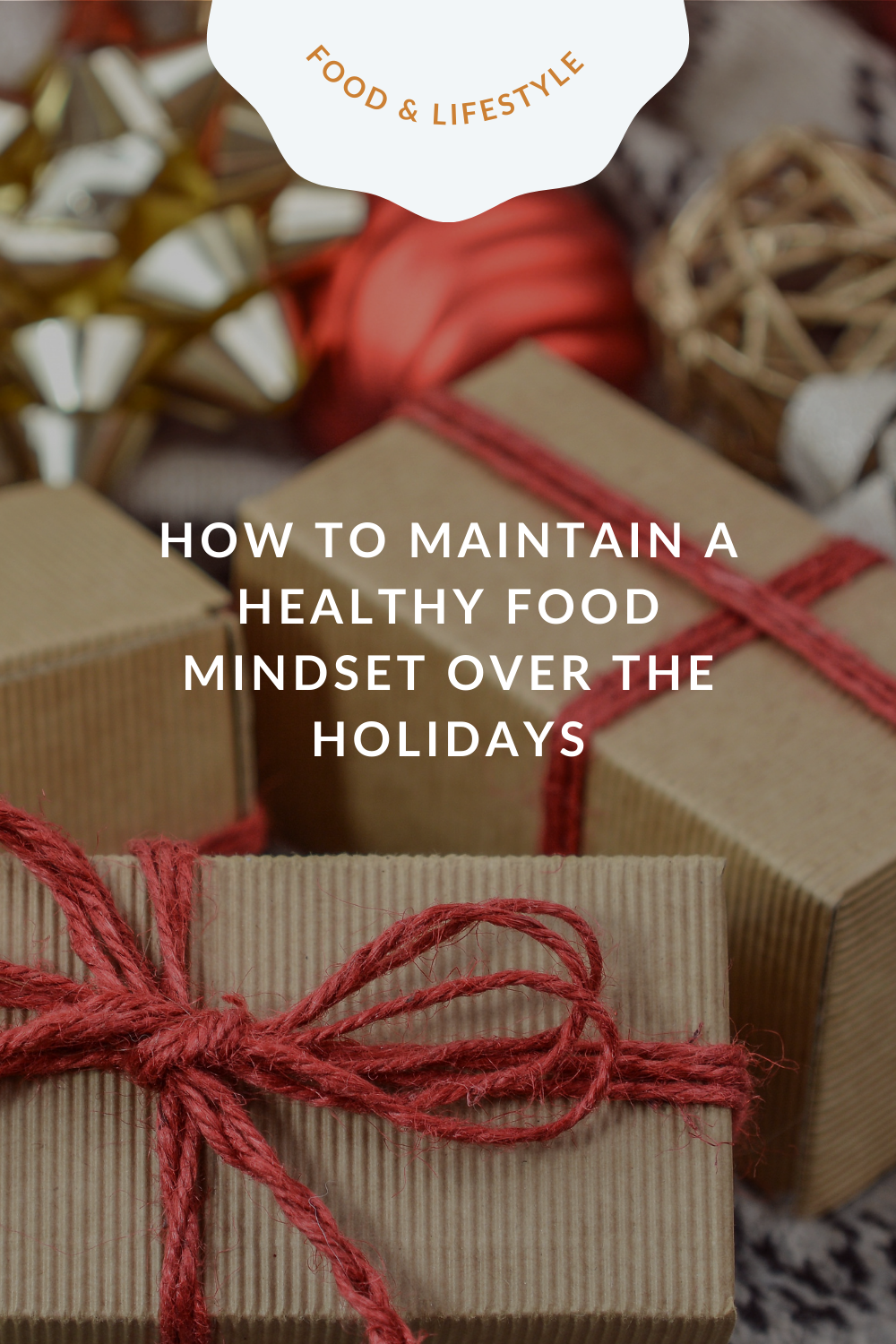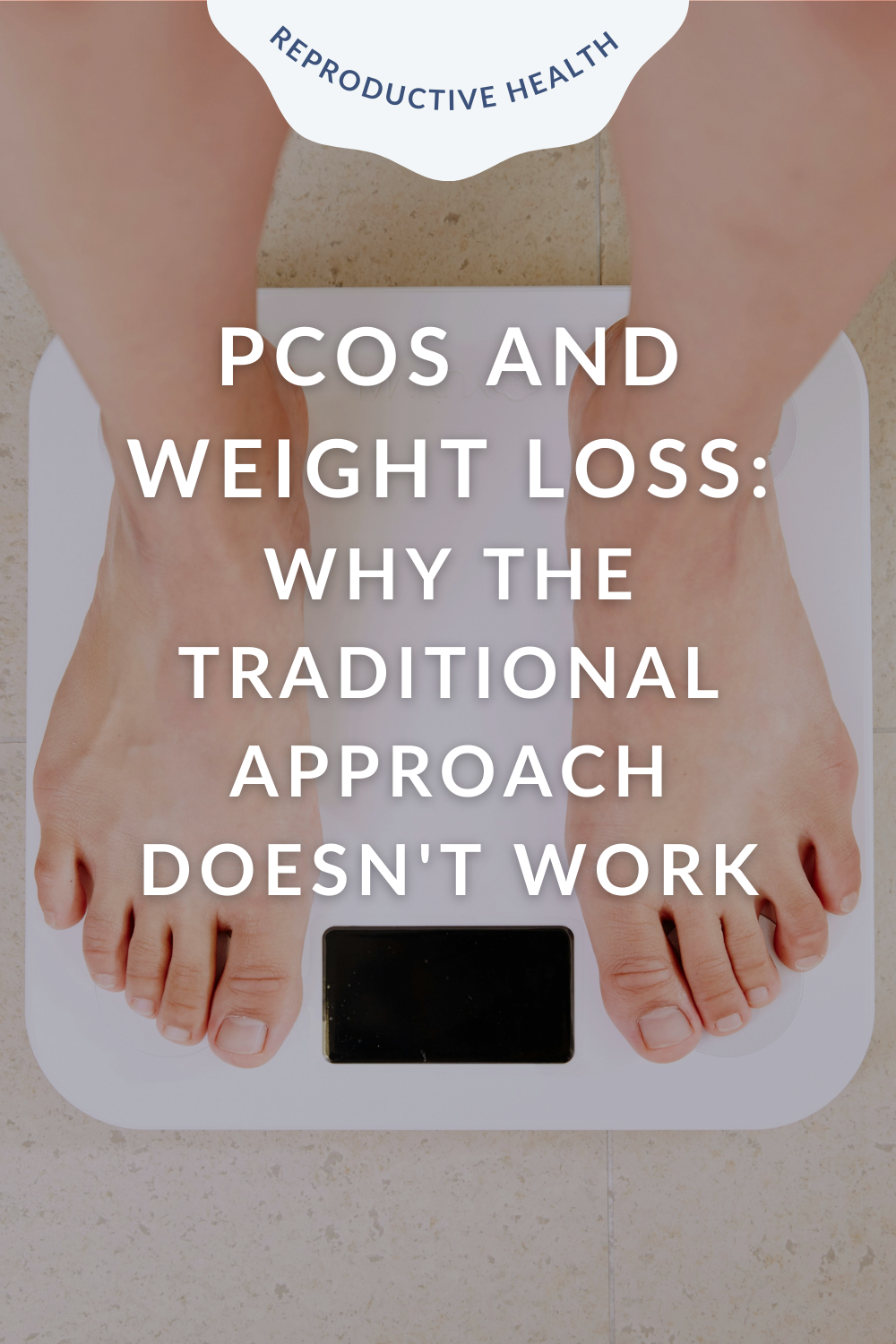How to Maintain a Healthy Food Mindset Over the Holidays
The holiday season is a time of joy, celebration, and of course, delicious food!
Balancing a healthy food mindset during this time can be challenging, especially with heightened discussions around food and diet culture.
Today, we'll address common food struggles during the holidays, provide tips to maintain a healthy food mindset, while providing practical gentle nutrition strategies to stay nourished.
What is a Healthy Food Mindset
Having a healthy food mindset is all about having a positive relationship with food. It involves mind-body connection, making conscious food decisions and embracing intuitive eating instead of rigid diets or calorie counting.
What does it exclude? Expectation, judgment, and uncomfortable emotions like guilt and shame.
Common Food Struggles and How to Manage
Reduce Guilt and Shame:
Evaluate Social Media: Assess the accounts you currently follow. Mute or unfollow accounts that consistently trigger negative emotions around food and make you feel upset, guilty or ashamed. Seek influencers whose values align with a positive and balanced approach to nutrition.
Avoid participating in Food Shaming: Whether intentional or not, we’ve all done it (I have to actively check myself around this too). It’s too easy to be sucked into a vortex of “I’m so bad for eating this” and “You’re hungry today, eh?”
Practice non-food gratitude: While food is undoubtedly a central part of the holidays, it's essential to recognize that the season involves more than just what's on the table. Reflect on the importance of the holidays, what you value most, and what you're genuinely grateful for. Share these reflections with others during holiday meals to foster a sense of connection beyond the culinary delights
Engage in Positive Self-Talk: How you talk to yourself matters. Your worth extends far beyond your food choices. Embrace self-kindness!
Seek Support: If navigating the holiday season feels particularly challenging, reaching out for support from friends, family, or a therapist can be instrumental.
2. Overcome Distracted Eating:
In the hustle and bustle of modern life, distracted eating can become the default. Rather, we encourage you to tune into meals with intention and curiosity, not haste or judgment.
This is the crux of mindful eating. Check out Mindful Eating: A non-Diet Approach to Improving Your Health for more. This holiday, consider trying to:
Tune into your body cues: Before diving into your meal, take a moment to connect with yourself - even amidst the holiday craze. Ask how you're feeling - anxious, excited, or bored? Consider the reasons behind eating, whether it's for pleasure, practicality, or out of boredom. Check-in with your sensory experience and how it changes as the meal progresses.
Practice non-judgmental awareness: It’s crucial to approach the experience with curiosity and awareness. Be mindful of the food you consume without passing judgment on your emotional state (we know it’s hard, and it takes consistent effort).
Remember, mindful eating is not a universal solution or exact science, but a practice that can help maintain mental and physical health.
3. Manage External Pressure:
External pressure, whether from your aunt over the holiday dining table or an influencer while you’re scrolling through TikTok, can significantly impact eating choices. Resisting such pressures and allowing your body's needs to guide your decisions is essential for a positive food relationship.
Consider these strategies:
Notice your hunger and fullness: Before adding food to your plate, take a moment to check in with your genuine hunger cues. Are you mindlessly munching on snacks straight from the box or bag? Many of us were raised with the notion of finishing everything on our plates to prevent food waste. However, this doesn't mean you must overeat. As mentioned earlier, focus on strategies like practicing portion control to align with your genuine hunger and fullness cues
We want to note - that it is not a universal rule. It’s okay to eat even if you’re not hungry - you have full permission to eat for taste, enjoyment. Our goal is that you bring awareness to the “why.”
4. Redirecting Diet Culture Talk:
If diet-related discussions come up at the dining table, there’s nothing wrong with disengaging. Redirect the conversation to a positive topic or politely excuse yourself, saying "I'd rather not discuss my diet. Let's focus on something more interesting, like... XYZ!" Or, simply disengage.
10 Principles of Intuitive Eating over the Holidays:
Intuitive eating, as conceptualized by Evelyn Tribole and Elyse Resch, involves understanding the distinction between emotional eating and genuine hunger. The primary objective is to nurture a healthier connection with food, rather than focusing on weight loss.
Embracing intuitive eating enables you to reconnect with your body's natural cues and develop a sustainable approach to eating that enhances overall well-being.The ten intuitive eating principles provide a valuable framework for cultivating a healthy relationship with food during the holiday season and beyond
Reject the Diet Mentality: Free yourself from the constraints of diet culture and embrace a mindset focused on overall well-being rather than weight loss.
Honour Your Hunger: Listen to your body's cues, recognizing genuine hunger and nourishing yourself accordingly.
Make Peace with Food: Let go of the notion that certain foods are off-limits. Embrace a positive and inclusive approach to all foods.
Challenge the Food Police: Disengage from internalized food rules and judgments. Allow yourself the freedom to make choices that align with your well-being.
Respect Your Fullness: Pay attention to your body's signals, stopping when you're comfortably satisfied. This practice helps break free from overeating patterns.
Discover the Satisfaction Factor: Seek pleasure and satisfaction in your meals. Embrace the sensory experience of eating and find joy in nourishing your body.
Honour Your Feelings Without Using Food: Cultivate alternative ways of coping with emotions without turning to food. Recognize that emotional well-being is multifaceted.
Respect Your Body: Embrace your body in its unique form. Focus on self-care and appreciation rather than pursuing an idealized body image.
Exercise - Feel the Difference: Engage in physical activity that brings you joy and makes you feel good. Shift the focus from exercise as a means of punishment to a celebration of movement.
Honour Your Health with Gentle Nutrition: Make food choices that support your overall health, not out of rigidity but as a form of self-care.
For those interested in delving deeper into intuitive eating, the book "Intuitive Eating, 4th Edition: A Revolutionary Anti-Diet Approach," available on Amazon in paperback, Kindle, and audiobook formats, offers a comprehensive guide to implementing these principles.
As the holiday season approaches, maintaining a healthy food mindset is achievable. Embrace intuitive eating, let go of guilt and shame, and practice mindful eating to savor the moments with loved ones. Resist external pressures and focus on what feels right for your body, striking a balance between indulgence and nourishment.
Remember, holidays are not about food but also about creating lasting memories and strengthening connections. Enjoy the festivities guilt-free, knowing you are taking care of yourself both physically and emotionally!
Cheers to a joyful, love-filled, and mindful holiday season, setting the stage for a happy, healthy new year ahead!
Hi! I’m Trista
A Registered Dietitian and reproductive health expert. I’m here to help you gain confidence to overcome your Polycystic Ovary Syndrome and digestive health woes, while bettering your relationship with food.
CATEGORIES
Looking to transform your relationship with food this holiday season?
Work with our team of Registered Dietitians in 1-on-1 Nutrition Coaching Programs to receive personalized nutrition guidance, meal plans and messaging support to gain knowledge, confidence and clarity to build healthy eating habits that last.
References
Intuitive Eating. (n.d.). Retrieved from http://www.intuitiveeating.org/















